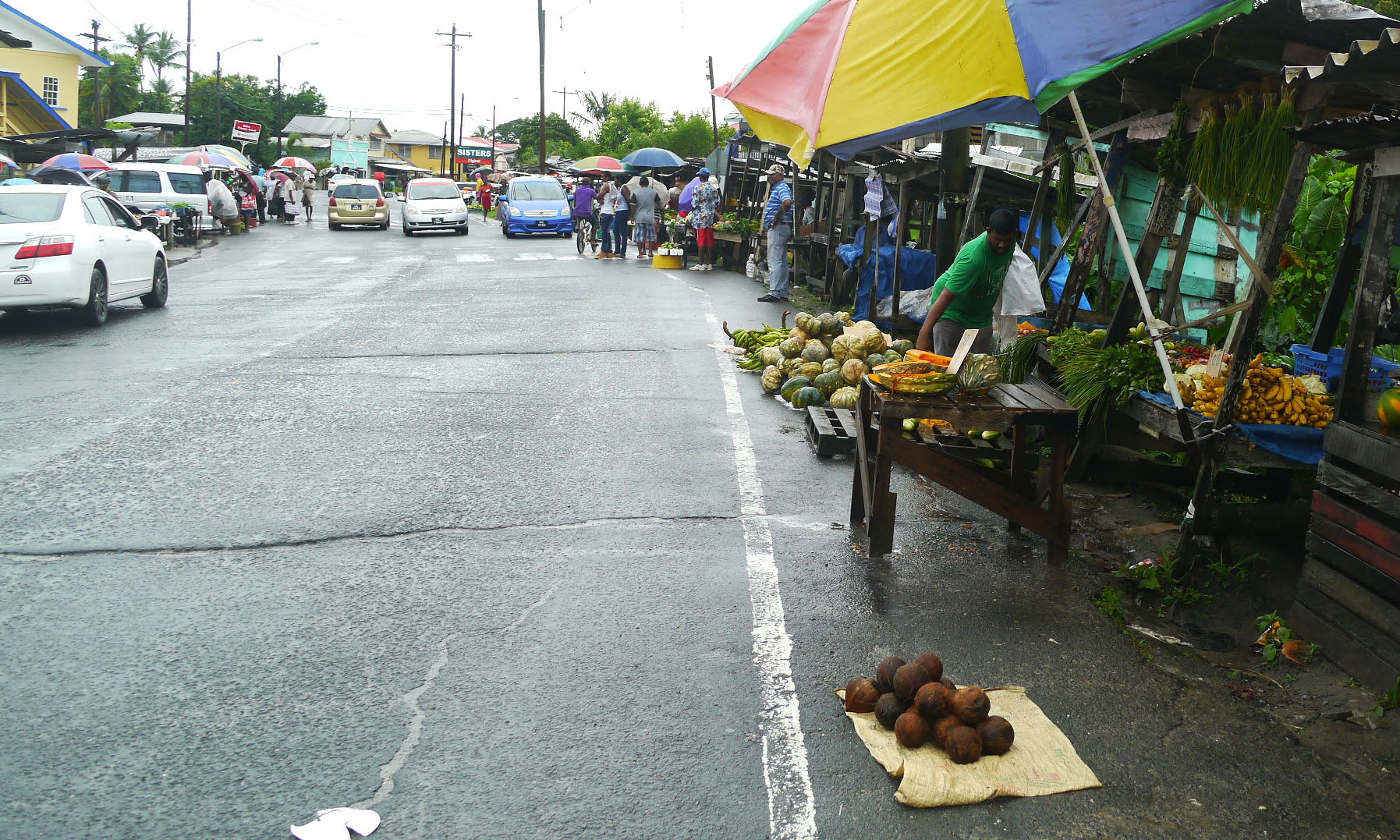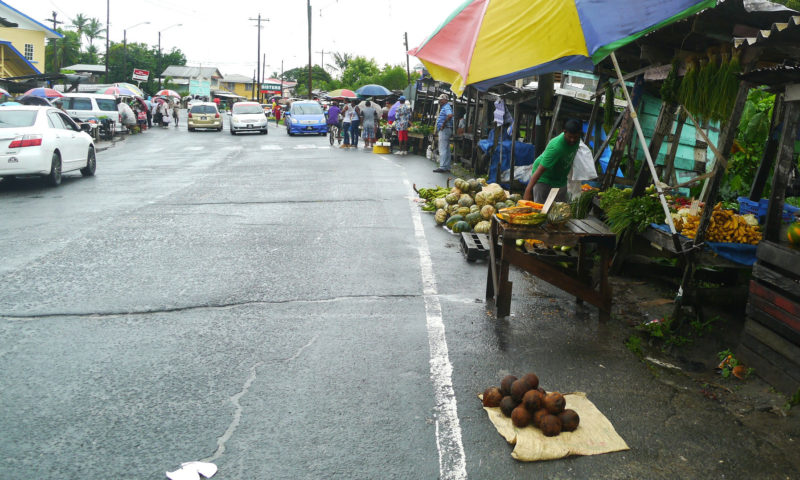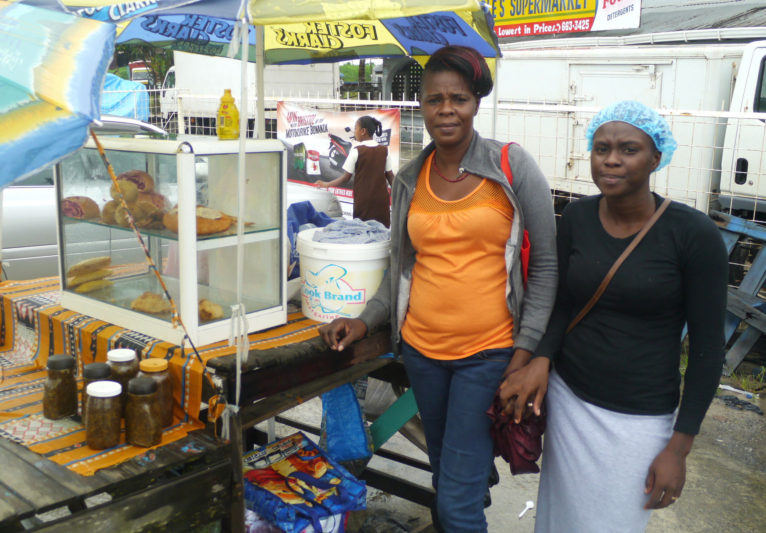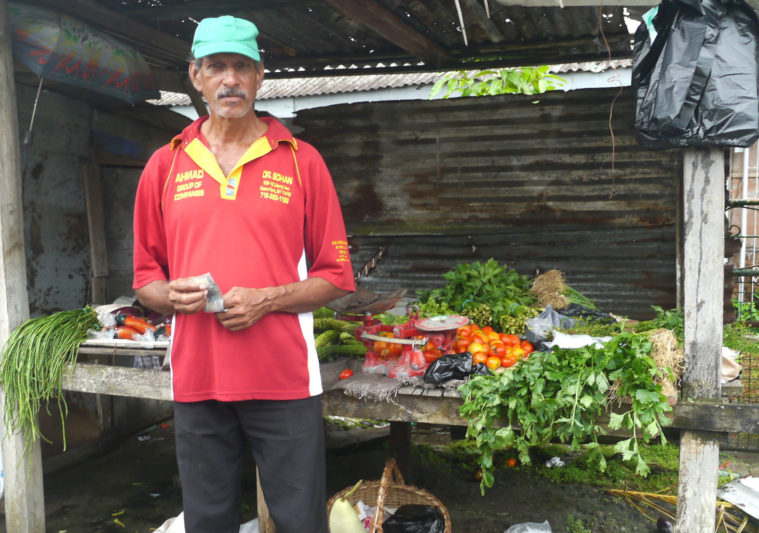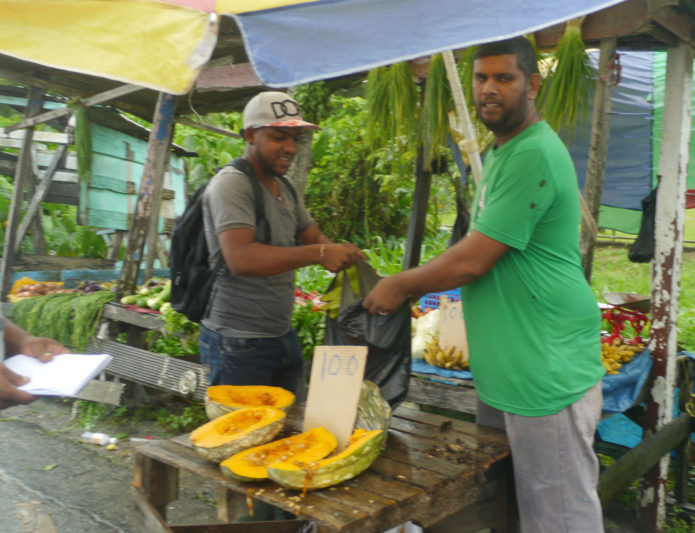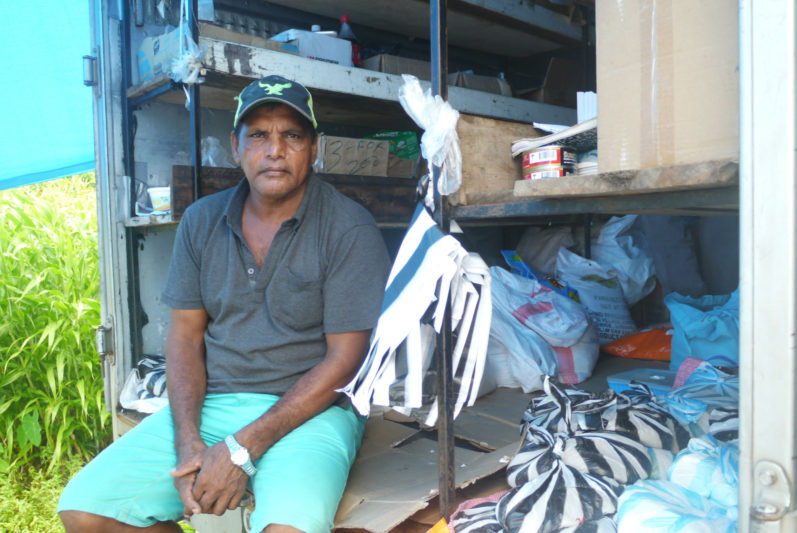Harry, a vegetable vendor at the Friday market at Wales, West Bank Demerara takes up his spot early even though business has dwindled, so he can please his few customers.
He said since the closure of the Wales sugar estate in December, residents barely have money to shop so “business is slow here and we finding it hard.”
His wife who was selling with him nodded her head in agreement. She told Stabroek News (SN) that if the customers used to purchase “$3,000 worth in greens, they can only buy $500 now.”
This was also the cry of the other vendors when SN paid a visit to the area on Friday. Their stalls sparsely lined both sides of the road, evident that some have been removed.
Many of the vendors were forced to close their businesses or go elsewhere to earn a living.
Just before we spoke to Harry, he had to reduce the price for a bunch of plantains from $600 to $400 for a customer because he did not have any more money.
The couple left their East Bank Essequibo home early to ply his trade, knowing that they would “barely make a profit.”
Harry recalled that when he started the business about four years ago, he used to bring a busload of items and it would be sold out very fast. Now, he lamented, they bring far less and it is difficult to sell.
He said it was “not easy to find gas to drive from so far and come to Wales every week and don’t get much sale.” He has to sell at another market on Saturdays to make up for the loss.
Nearby, a vegetable vendor from Parika, Ronald Singh stood in front of his well-stocked stall as he tended to a customer. He was shy to offer a comment, except to say, “Business really slow.”
Mary Clarke was chopping up meat as she chatted with friends and waited on customers to come.
According to her, “there are more sellers than buyers in this market. It is hard but we have to try…”
She recalled that when the estate was “in action business was by far better. Now one one people just walking by and buying. It slow but we don’t know what can be done to make it better.”
Terrence, a grocery vendor of La Grange sat at the back of his canter truck as he looked over his well-stocked stall and awaited customers.
He, too, was facing “rough business” and lamented that “every week it getting worse.”
When he started the business 10 years ago, it was “bright” and he never imagined that “one day it would be like this.”
According to him, vendors used to line both sides of the road and when the shoppers came out, “the vehicles didn’t have place to pass.”
“Now you’re hardly seeing customers out here. The people who are doing more shopping are the pensioners [estate and old age] and security guards” as well as other workers who continued to get paid at the estate.
He said too that the market “used to last till 5’o clock but now by 1:30; we close up and go home because nobody coming to buy.”
Across the road, a clothing vendor waited patiently on customers to show up and stressed that he was feeling the impact of the closure.
“I don’t know what the President [David Granger] doing with us. Like he want we suffer. Since the estate close people not coming to shop. It look like soon the market would close down too,” the distressed man said.
Pinch it
Although he was importing clothing from the US in barrels and selling them at “reasonable prices,” the residents still could not afford.
“But we have the stocks so we have to come out… The little money that the people get they have to pinch it to eat. It has to be a necessity before they buy clothes…,” he told SN.
Nearby, Allison Davis was also awaiting her next customer to purchase her egg-balls and other snacks she had displayed in her glass-case as well as beverages. She was also selling mango achar she made and filled in glass bottles.
She came out to ply her trade from 4:30 am and said everything used to be sold out by 10 am and “I’m shaping up to go home.” That was before the closure of the estate.
But when this newspaper spoke to her close to midday, she said although she made fewer items she still had some remaining.
Davis was a nurse by profession but she had quit her job to “come out to hustle.” She lamented the “heavy impact” the closure of the estate was having on the community.
“Lots of people out of jobs and now we are affected by thieves. By 5’o clock [pm] we have to close up our houses. They are stealing from a spade to clothes off your line and selling them… because people have to eat,” she told this newspaper.
“Things were bright when the estate was working but the government made it hard on the people. And they are still holding up the cane-cutters severance pay. They have to pay the people their money…”
According to her, even when a few residents would get government jobs to build bridges, they have to wait about four weeks to get paid.
She said too: “They have contractors to clean road but not one man alone must get all the money. They should give the work to the people who are out of jobs. They are supposed to find other jobs for the workers.”
The woman who helps to take care of four of her grandchildren was distressed that the government stopped giving the $10,000 school voucher for each child.
She also said “long ago the schools used to give books but now they are giving book lists to buy them.”
Down in the street where other vendors were plying their trade, Persaud [only name given], known as ‘Tall Bai,’ told SN that in his 40 years of selling greens, this was the worst time for him.
According to him, “The impact [from the closure] is terrible. It’s affecting the whole society. This street had about 30 stalls but it only has about 12.”
Persaud does a little farming at Mahaicony but also purchases some other produce to sell. He travels from Mahaicony every week to sell there because “I started my business here. My wife is from here.”
He was disappointed with the way the government handled the estate’s closure, saying: “Before they close they were supposed to start the diversification so they would know what they were about. They should have gotten the workers involved too.”
He feels that they could have planted passion fruit, cocoa or even coffee.
Criticizing the seed paddy rice venture that the government has started, he lamented, “There is no market for rice. If they go into something they have to know about it.”
He added: “They just can’t scrap a multi-million dollar business that was bringing in foreign exchange and go into rice. What would rice bring?”
According to him, “Wales was the second largest estate and it [closure] affect 20,000 people. What would happen to those people?”
